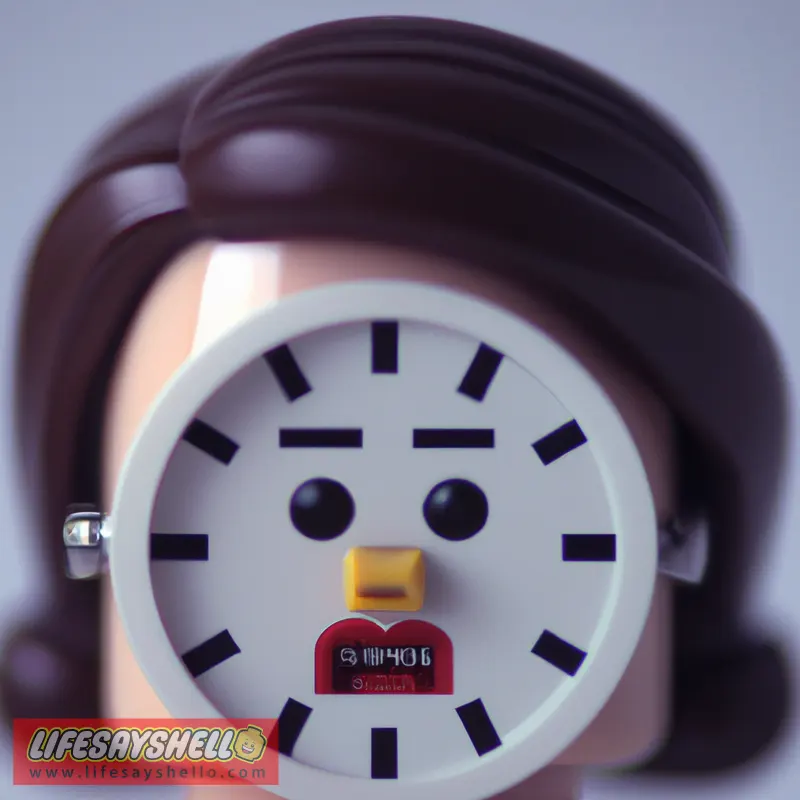9 Common Reasons Why Your Period is Late

Has your period gone AWOL? Finding that monthly visitor is a no-show can definitely cause anxiety. But before you panic, know that there are many common and benign causes for a late period. Here are the nine most likely reasons Aunt Flo is tardy this month.
We'll also cover when you should see your doctor about a delayed period. But first, what counts as "late" anyway?
What's Considered a Late Period?
Your period is considered late if it hasn't started within 7 days of when you expected it. For example, if you have a 28-day cycle, and your period hasn't started by day 35, then it's officially late.
Of course, no two cycles are exactly the same - even your own. The length of your cycle can vary from month to month. It's common for your period to come a few days earlier or later than usual now and then. This is perfectly normal.
You only need to take note if your period is consistently late or very delayed (like weeks late). The occasional late period isn't necessarily something to worry about. But if you go months without a period, it could signal an underlying health condition that requires medical attention.
Alright, now that we've defined a late period, let's look at some of the most common reasons it can happen.
1. Pregnancy
One of the first thoughts when a period goes MIA is almost always pregnancy. After all, a missed period is one of the hallmark symptoms of pregnancy. But don't run to the drugstore for a pregnancy test just yet.
There are lots of other potential causes for a late period besides a bun in the oven. But yes, pregnancy is high on the list of possibilities if you're sexually active and Aunt Flo hasn't shown her face.
A missed or very late period can be an early sign of pregnancy, even before other symptoms appear. That's because your menstrual cycle is suppressed by the hormones produced during pregnancy.
So if you've had unprotected sex and your period is AWOL, take a pregnancy test to find out for sure. If it's positive - congrats, mama! If it's negative but your period is still nowhere to be found, keep reading for other possible explanations.
2. Stress
Modern life is stressful, y'all. And all that stress can wreak havoc on your hormones - including the delicate balance of hormones needed to maintain your menstrual cycle.
Physical and emotional stress causes your body to produce more of the hormone cortisol. Too much cortisol can interfere with the dance of hormones that trigger ovulation and menstruation.
Major life stressors like a death in the family, divorce, job loss or moving can all contribute to period delays. But even daily stressors like a bad commute, fights with your partner or workload pressure can add up and impact your cycle.
If you've been under more stress than usual, this stress response may be putting your period on pause. Try to amp up the self-care with yoga, meditation, therapy or whatever helps you chill out. Minimizing stress could help get your cycle back on track.
3. Hormonal Imbalances
Hormone issues are by far the most common reason for menstrual cycle irregularities, including a late or missing period. Your menstrual cycle is controlled by a complex choreography of hormones. Even small disruptions can throw off this delicate dance and cause changes in your cycle.
For example, too much prolactin (the hormone that enables breast milk production) can interfere with ovulation. Insufficient estrogen can cause irregular periods and infertility. Polycystic ovarian syndrome (PCOS) - which we will get to next - is essentially a hormonal imbalance.
Thyroid disorders, uncontrolled diabetes, and other endocrine system problems can also lead to hormone imbalances that affect menstruation. The cause could be primary - meaning originating in the ovaries or pituitary gland. Or it could be secondary, from an issue in the thyroid, pancreas or adrenal glands.
If your hormones are out of whack, your OB-GYN can help identify the cause and get them back on track. Medications, supplements or lifestyle changes may be used to treat hormonal imbalances and regulate your cycle.
4. Polycystic Ovary Syndrome (PCOS)
Speaking of hormonal imbalances, polycystic ovary syndrome is one of the most disruptive when it comes to your period. PCOS is a common condition estimated to affect 6-12% of women of reproductive age.
With PCOS, your ovaries produce higher-than-normal amounts of androgens - "male" sex hormones like testosterone. This leads to a hormone imbalance that can cause irregular or absent periods, ovarian cysts, weight gain, excess facial and body hair, acne and difficulty getting pregnant.
The exact cause of PCOS is unknown, though genetics play a role. Insulin resistance also appears to be tied to PCOS and the associated hormone imbalances.
There's no cure for PCOS, but symptoms can be managed through medications like birth control pills, anti-androgens and metformin. Losing weight may also help restore hormone balance and regulate cycles. If you suspect you have PCOS, see your doctor - they can run tests and get you the right treatment plan.
5. Extreme Diet and Exercise
What you eat and how much you exercise can significantly impact your menstrual cycle. Dramatic changes in eating habits, weight, or activity levels can disrupt ovulation and throw your period out of whack.
Excessive dieting, over-exercising and big fluctuations in weight are common causes of missing or irregular periods in young women. If you've recently lost a significant amount of weight due to an extreme diet or intense training regimen, this could be putting your period on pause.
When you severely restrict calories or lose an excessive amount of body fat, it leads to hormonal changes that can stop ovulation. This is the body's natural protective response - halting reproduction in times when energy reserves are dangerously low.
Over-exercising has a similar effect. Working out too much and too hard leads to an energy deficit that turns off the hormones that control your cycle. Extreme athletes and dancers are prone to menstrual issues for this reason.
To get your cycle back, focus on maintaining a healthy weight through balanced nutrition and moderate activity. Easing up on exercise may help kickstart ovulation as well.
6. Thyroid Issues
Your thyroid - the little gland in your neck that regulates metabolism - also has an influence on your menstrual cycle. Both overactive (hyperthyroid) and underactive (hypothyroid) thyroids can lead to irregular periods.
The thyroid produces hormones that work synergistically with reproductive hormones. When thyroid hormone levels are too high or low, it throws other hormones out of balance. This includes the hormones that regulate ovulation and menstruation.
Hyperthyroidism tends to cause light, irregular or absent periods. Hypothyroidism also leads to irregular cycles, usually with heavier bleeding.
If you have other thyroid symptoms like unexplained weight changes, fatigue or feeling too hot or cold, ask your doctor to test your thyroid hormone levels. Once any thyroid issues are treated and hormone levels stabilize, your period should get back to normal.
7. Certain Medical Conditions
Some chronic medical conditions are associated with irregular periods or amenorrhea (lack of periods). These include:
Diabetes - both type 1 and type 2 diabetes can cause irregular menstrual cycles. Fluctuating blood sugar impacts hormones.
Celiac disease - damage to the small intestine from this autoimmune disease can lead to nutrient deficiencies that disrupt menstruation.
Inflammatory bowel diseases - issues like Crohn’s disease or ulcerative colitis may be linked to menstrual abnormalities.
High blood pressure - uncontrolled hypertension can affect ovulation and lead to cycle changes.
Heart disease - the hormone changes from conditions like endometriosis or coronary artery disease can cause missed periods.
Eating disorders - anorexia, bulimia and other eating disorders cause extremely low body weight, hormone disruption and cycle irregularities.
Premature ovarian failure - when ovaries stop functioning normally before age 40, periods become irregular or stop completely.
If you have one of these conditions and notice your cycles are irregular, discuss it with your doctor. Treating the underlying issue may resolve your menstrual problems.
8. Hormonal Birth Control
Ironically, one of the most common reasons for a "late" period is actually birth control. Hormonal contraceptives like the pill, shot, implant or hormonal IUD can cause your cycle to be different than what you expect.
It takes time for your body to adjust to the synthetic hormones in birth control. During the first 3-6 months, you may experience breakthrough bleeding or spotting. Your "period" on birth control is not the same as your natural menstrual cycle - it's caused by withdrawal from the hormones when you take the placebo pills or have your patch-free week.
It’s also common to not have a withdrawal bleed at all on birth control, especially with methods like the shot or hormonal IUD. This doesn’t mean you’re pregnant - the synthetic hormones prevent ovulation so there is no cycle to disrupt.
Don’t panic if you don’t get your expected period on birth control. As long as you've been taking it consistently and correctly, it's providing protection against pregnancy and your lack of period is normal. Still concerned? Take a pregnancy test to ease your mind.
9. Perimenopause
As you reach your late 30s and 40s, your body starts the transition towards menopause. This transitional time is called perimenopause.
Shifting hormone levels during perimenopause can cause many changes in your menstrual cycle, including shorter or longer cycles and skipped periods. Periods may become lighter or heavier. You may also experience hot flashes, sleep disruptions, vaginal dryness and other menopausal symptoms.
Irregular cycles are par for the course during the perimenopausal transition. It may last for months or even years before your period stops completely and you reach menopause.
If you’re over 35 and your cycles are irregular, perimenopause could be the reason. Talk to your healthcare provider about options to ease symptoms during this transitional time.
When to See Your Doctor
Okay, we’ve covered the most common reasons for a late period. But how do you know when to see your doctor about it? Here are some general guidelines:
See your physician or gynecologist if:
- Your period is very late or absent for 3 months or longer
- Your periods were previously regular but have become frequently delayed
- You have symptoms like excessive bleeding or pelvic pain along with delayed periods
- You have other concerning symptoms suggestive of hormone issues or health conditions
- You get frequent negative pregnancy tests along with a late period
- You’re trying to conceive but your cycles are irregular
Make an appointment sooner if you have severe pain, bleeding or other symptoms that are impacting your daily life.
Most of the time, a late period is nothing to fret about. But consistently irregular or absent cycles can be a sign of an underlying health issue that needs medical attention. So don’t hesitate to get checked out.
The Takeaway
A late period now and then is usually NBD. But if your monthly visitor is consistently tardy or AWOL, take note of that.
Review the common causes of a delayed period. If you can relate your situation to one of them, that’s often nothing to worry about. Try lifestyle remedies like stress management and exercise moderation.
But if your periods remain irregular after a few months, it's worth seeing your doctor. Missed or irregular periods could be due to hormone troubles, health conditions or perimenopause. Your OB-GYN can get to the root cause and help regulate your cycle again.
With so many potential reasons for lateness, a delayed period doesn't have to cause distress. But don't ignore consistently irregular cycles - it's your body's way of signaling that something may be up. Listen to what your period is trying to tell you.




Comments